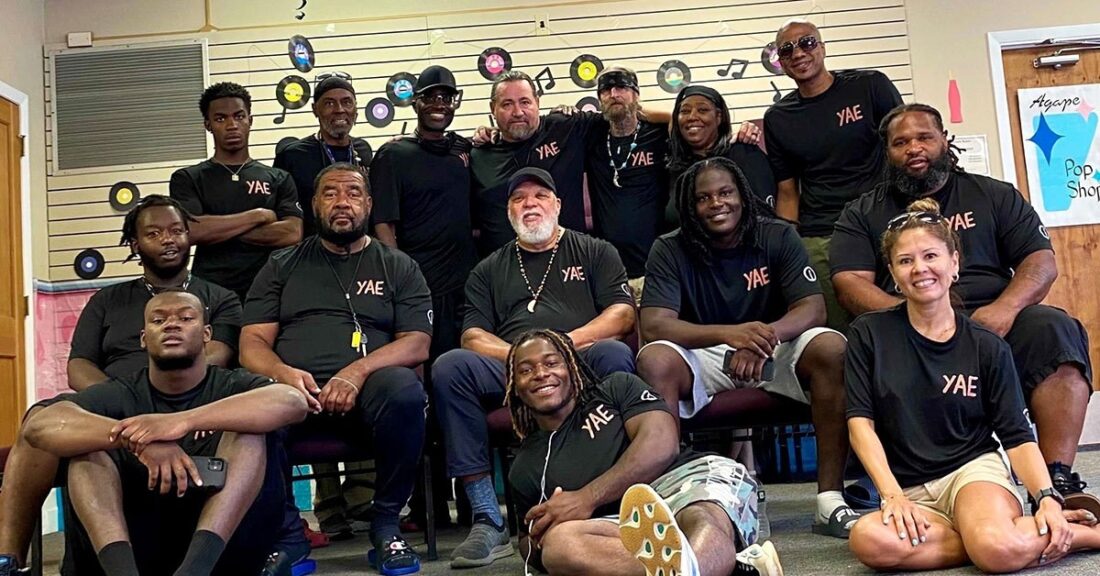Healing Circles Help New Jersey Youth in Custody

The New Jersey Juvenile Justice Commission expanded the Inside Circle program to recently paroled youth
New Jersey’s Juvenile Justice Commission (JJC) has embarked on a new strategy to break the cycle of recidivism and violence for young people in its facilities.
Since May 2019 — with support from the Annie E. Casey Foundation — the JJC has worked with an organization called Inside Circle to implement an intensive restorative process for young people committed to state custody. This approach utilizes healing circles to help youth confront past trauma, learn positive coping strategies and begin to rebuild trust with loved ones and the community. Trained facilitators lead each circle, and they have a special connection to the work: experience in street culture and the criminal justice system.
For the initial group, JJC staff identified young people who had committed significant violence in the community and demonstrated violent behavior while in custody. Participation was strictly voluntary.
JJC’s early results for these circles — informed by surveys of staff and youth and an analysis of infraction records — are encouraging. They indicate:
- Disciplinary infractions decreased 45% among participants as the youth learned how to better communicate and regulate their emotions.
- When compared to peers with no healing circle experience, participants were more likely to report reduced stress, stronger connections with adults and hope for future success.
- JJC staff observed improvements in participants’ behavior and outlook as well as their efforts to positively engage with staff, peers and programming.
“In these circles, I learned how to express my emotions verbally,” past participant Jacques B. told the national Council of Juvenile Justice Administrators in October 2021. Speaking about Inside Circle’s facilitators, Jacques said: “These guys really helped me look at life differently…After joining the group, I had a purpose after coming home. They gave me an idea of what a purpose was.”
Transforming care for youth in custody
Healing circles are based on a group therapeutic approach used to help military veterans. Their reported impact on youth in custody — reduced aggression, increased hope and stronger connections — underscore the value of relatable facilitators and programming that promotes healing and resilience.
“Working with Inside Circle through the JJC’s continued partnership with the Annie E. Casey Foundation, we are witnessing remarkable transformations in young people as they work together through these healing circles to process their pain and trauma, build a community of support and find hope and connection,” says Jennifer LeBaron, acting executive director of the New Jersey Juvenile Justice Commission.
The young people experiencing youth corrections in New Jersey and elsewhere are disproportionately and overwhelmingly youth of color. “Youth and young adults in custody deserve the opportunity to heal from harm inflicted on them and address harm they have committed on others,” says Tanya Washington, senior associate with the Casey Foundation. The Foundation’s support of the Inside Circle programming is part of its work to elevate the standard of care for youth in custody, even as states, counties and cities move away from the youth prison model.
New Jersey’s series of firsts in youth justice
The Casey Foundation has partnered with JCC for more than a decade on juvenile justice reform, including its effort to shift young people from large correctional settings to smaller, therapeutic facilities.
New Jersey was the first jurisdiction to make a state-level commitment to JDAI® and implement the approach in every county statewide. Now, New Jersey — with the Casey Foundation’s support — is the first state to bring the organization and its approach to juvenile facilities.
Next steps include healing at home
To date, 46 youth have participated in healing circles while in state custody and the approach has left JJC impressed. So impressed, in fact, that the commission has announced plans to expand its Inside Circle programming to include recently paroled youth.
Watch a video on elevating care for youth in custody
Read about the momentum building in states to end the youth prison model





